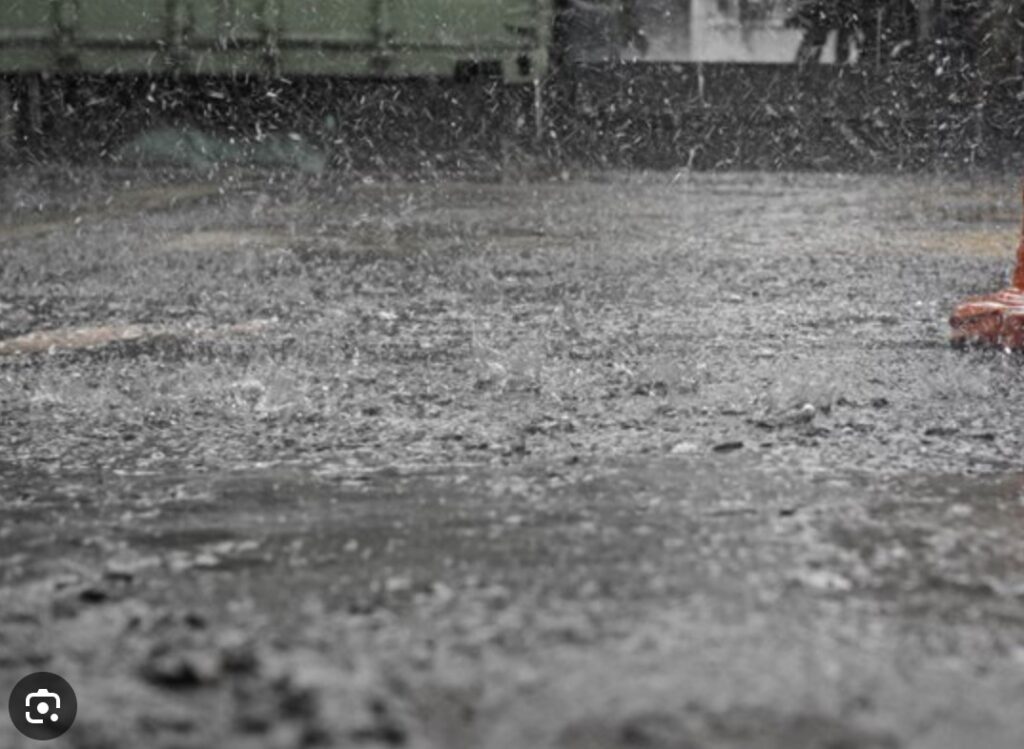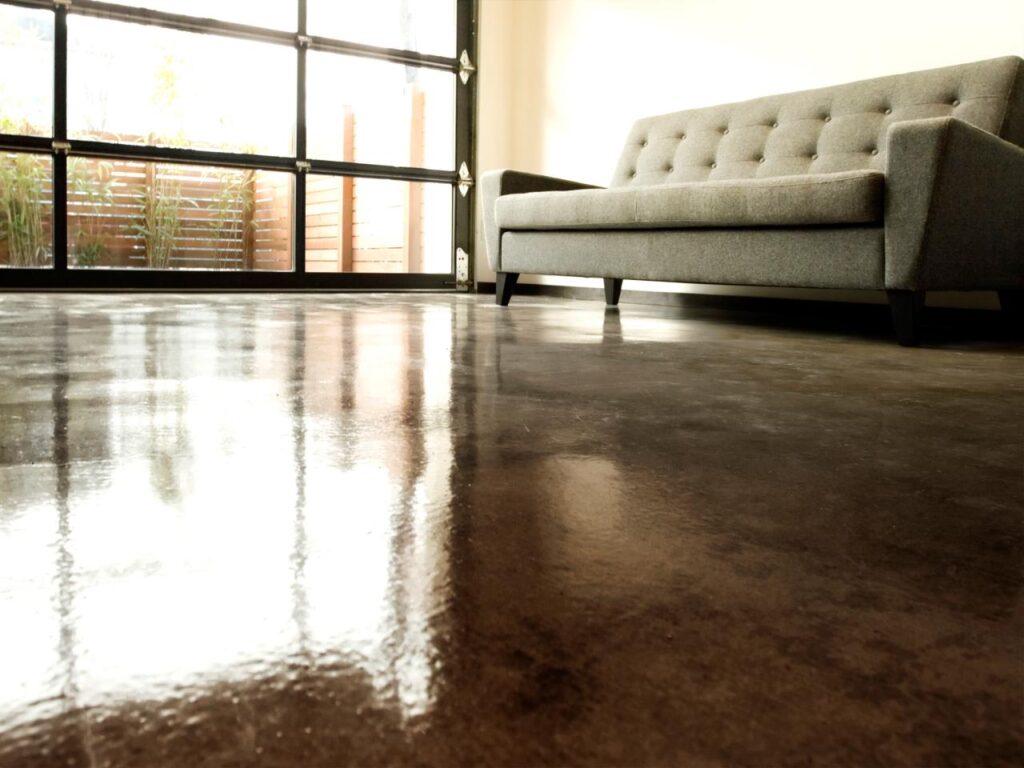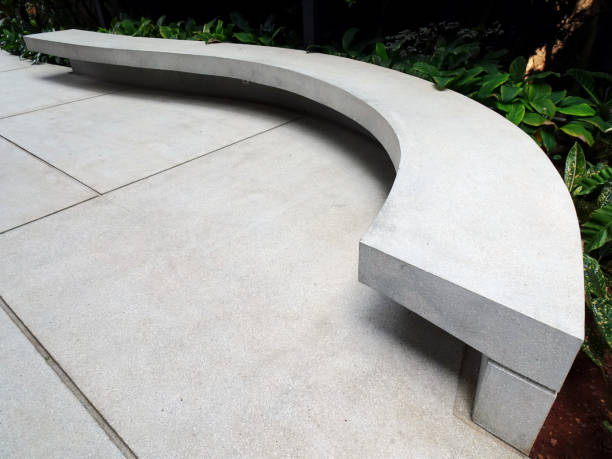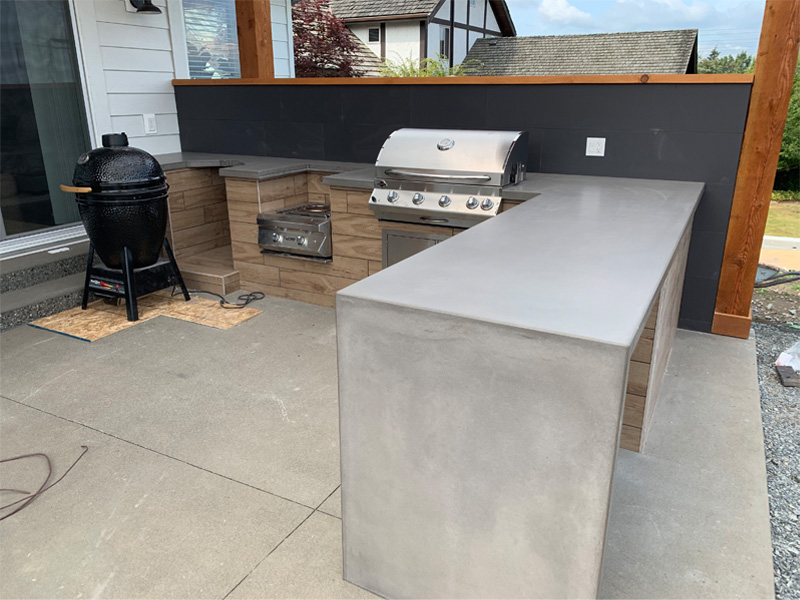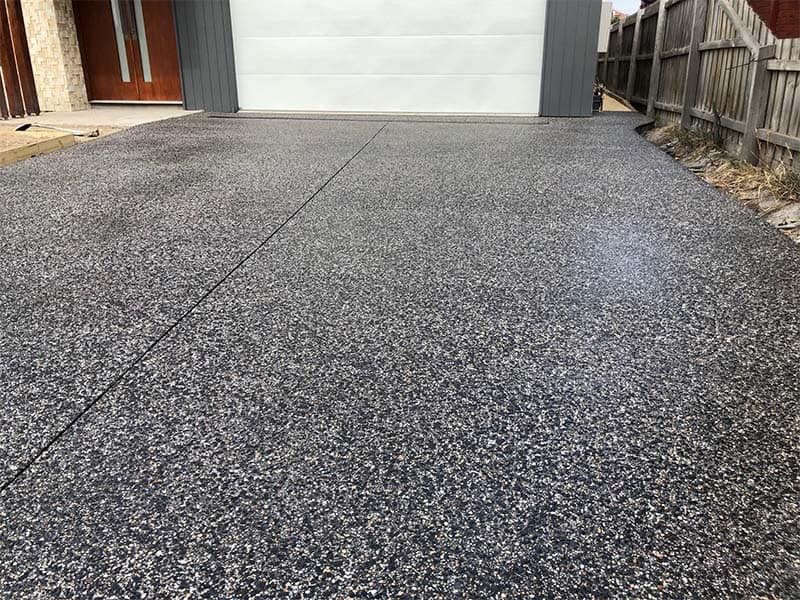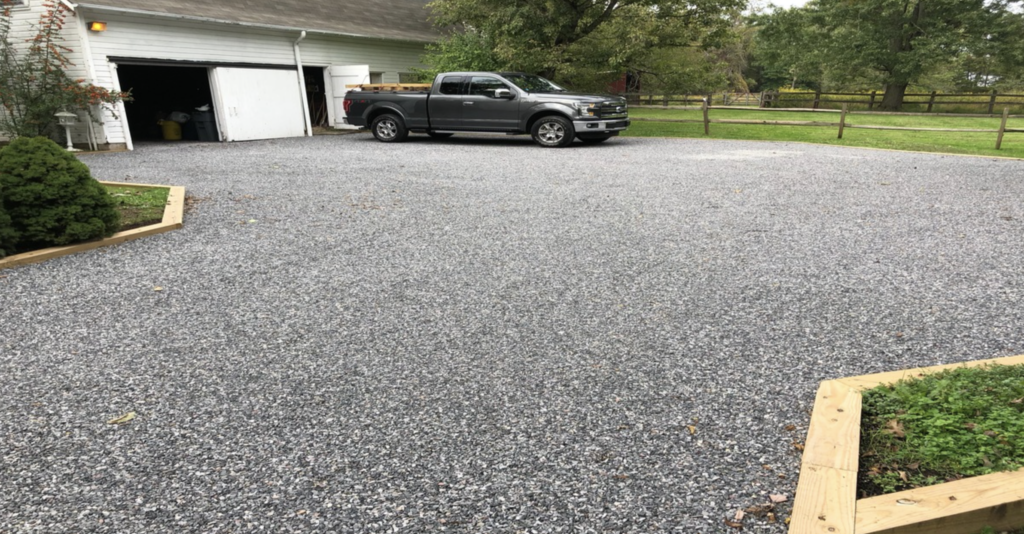Rain can be a welcome sight for many people, especially in dry areas. However, for those who have just installed a new driveway, rain can be a cause for concern. Rain can have a significant impact on a fresh driveway, causing damage and reducing its lifespan. Understanding the effects of rain on a new driveway and taking preventive measures can help homeowners protect their investment.
Driveway construction involves several steps, including excavation, grading, and paving. Once the driveway is paved, it needs time to cure and harden. During this time, rain can have a detrimental effect on the surface of the driveway. Rainwater can seep into the asphalt or concrete, causing cracks and potholes. Additionally, rain can wash away the top layer of the driveway, exposing the underlying layers to further damage.
Key Takeaways
- Rain can have a significant impact on a new driveway, causing damage and reducing its lifespan.
- Driveway construction involves several steps, and once the driveway is paved, it needs time to cure and harden.
- Taking preventive measures, such as sealing the driveway and diverting water away from it, can help protect a new driveway from rain damage.
- Key Takeaways
- Materials Used
- Construction Process
- Immediate Effects
- Long-Term Damage
- Weather Forecasting
- Use of Protective Covers
- Assessment of Damage
- Repair
- Restoration
- How long does it take asphalt to dry after paving?
- How long does pavement take to dry after rain?
- Can you lay pavers in the rain?
- How soon after paving can it rain?
- How long does a new driveway need to dry?
- Is water bad for new asphalt?
Understanding Driveway Construction
Materials Used
When constructing a new driveway, several materials are used to ensure its durability and longevity. The most common materials used are:
- Gravel: This is the most affordable option and is suitable for low-traffic areas.
- Asphalt: This is a popular option due to its durability and ease of maintenance.
- Concrete: This is the most durable option, but it is also the most expensive.
In addition to these materials, contractors also use base materials such as crushed stone, sand, and gravel to ensure the driveway’s stability.
Construction Process
The construction process of a driveway involves several steps to ensure its strength and longevity. These steps include:
- Site Preparation: The area where the driveway will be constructed is cleared of any vegetation, rocks, or debris.
- Excavation: The ground is excavated to a depth of at least 6 inches to ensure proper drainage and stability.
- Base Preparation: The base material, such as crushed stone, is laid down and compacted to create a solid foundation for the driveway.
- Edging: The edges of the driveway are defined using either concrete or pavers to prevent the driveway from shifting or cracking.
- Surfacing: The selected material, such as asphalt or concrete, is laid down and smoothed out to create a smooth surface.
- Curing: The driveway is left to cure for several days to ensure that the material has fully set and hardened.
In conclusion, understanding the materials and construction process used in driveway construction is essential to ensure the durability and longevity of the driveway. By following the proper steps and using quality materials, homeowners can enjoy a beautiful and functional driveway for years to come.
Impact of Rain on Fresh Driveways
Immediate Effects
When it rains on a newly installed driveway, the immediate effects can be noticeable. The rainwater can wash away the top layer of the driveway, exposing the aggregate underneath. This can result in a rougher surface that is less aesthetically pleasing. Additionally, rainwater can create small pits and cracks in the surface of the driveway, which can lead to larger cracks over time.
Long-Term Damage
While the immediate effects of rain on a new driveway can be concerning, the long-term damage can be even more worrisome. If water is allowed to penetrate the surface of the driveway, it can cause the base layer to shift or erode. This can result in larger cracks and potholes that are difficult to repair.
Rainwater can also cause the driveway to become uneven over time, which can create tripping hazards and make it difficult to drive on. If the driveway is not properly sealed, rainwater can also cause the surface to become stained and discolored, which can be difficult to remove.
To prevent long-term damage from rain, it is important to properly seal the driveway and ensure that water does not penetrate the surface. Homeowners should also be sure to clean their driveway regularly to remove any debris or dirt that can trap moisture and cause damage over time.
In conclusion, while rain can have a negative impact on newly installed driveways, it is important to take steps to prevent long-term damage and ensure that the surface remains smooth and safe to use. Proper maintenance and sealing can go a long way in protecting your investment and ensuring that your driveway lasts for years to come.
Preventive Measures Against Rain Damage
Weather Forecasting
Before starting the driveway construction, it is important to check the weather forecast for the upcoming weeks to ensure that there are no heavy rains expected. If heavy rain is predicted, it is recommended to postpone the construction until the weather clears up. This will prevent the newly constructed driveway from being damaged by rain.
Use of Protective Covers
If the driveway construction cannot be postponed, it is recommended to use protective covers to protect the newly constructed driveway from rain. Protective covers can be made of tarps or plastic sheets and should be placed over the driveway before the rain starts. This will prevent the rainwater from seeping into the newly constructed driveway and causing damage.
It is important to note that protective covers should be removed as soon as the rain stops to allow the driveway to dry out. Leaving the covers on for too long can trap moisture and cause damage to the driveway.
In addition to using protective covers, it is also recommended to use a sealer on the newly constructed driveway. A sealer will help to protect the driveway from rainwater and prevent damage. It is important to follow the manufacturer’s instructions when applying the sealer to ensure that it is applied correctly and provides the desired level of protection.
By taking these preventive measures, homeowners can protect their newly constructed driveways from rain damage and ensure that they last for many years to come.
Dealing with Rain-Damaged Driveways
Assessment of Damage
When it rains on a new driveway, it can cause damage that can be difficult to assess. The first step in dealing with rain-damaged driveways is to assess the extent of the damage. This can be done by looking for signs of cracking, pitting, or discoloration in the surface of the driveway.
If the damage is minor, it may be possible to repair the driveway without the need for extensive restoration. However, if the damage is severe, it may be necessary to completely replace the driveway.
Repair
If the damage is minor, it may be possible to repair the driveway by filling in any cracks or pits with a patching compound. This can help to prevent further damage and extend the life of the driveway.
If the damage is more severe, it may be necessary to resurface the driveway. This involves removing the damaged surface layer of the driveway and replacing it with a new layer of asphalt or concrete.
Restoration
If the damage is severe, it may be necessary to completely replace the driveway. This can be a costly and time-consuming process, but it may be the only option if the damage is too extensive to repair.
When restoring a driveway, it is important to choose the right materials and techniques to ensure that the new driveway is durable and long-lasting. This may involve consulting with a professional contractor to determine the best course of action.
In conclusion, dealing with rain-damaged driveways can be a challenging task. However, by assessing the extent of the damage and choosing the right repair or restoration techniques, it is possible to restore the driveway to its original condition and ensure that it lasts for years to come.
Professional Advice and Services
Professional advice and services can be a valuable resource for homeowners who want to ensure their new driveway is properly installed and protected from rain damage. Here are some of the services that professionals may offer:
- Driveway Installation: Professionals can install new driveways that are designed to withstand heavy rain and other weather conditions. They can help homeowners choose the right materials and design for their specific needs and budget.
- Sealing and Coating: Sealing and coating can help protect a new driveway from rain damage. Professionals can apply a variety of sealants and coatings to help prevent water from penetrating the surface and causing cracks or other damage.
- Drainage Solutions: Proper drainage is essential for preventing rainwater from pooling on a driveway and causing damage. Professionals can install drainage systems that are designed to channel water away from the driveway and into a safe location.
- Maintenance and Repair: Regular maintenance and repair can help extend the life of a driveway and prevent rain damage. Professionals can provide routine maintenance services, such as cleaning and sealing, as well as repair services for cracks, potholes, and other damage.
Overall, hiring a professional for driveway installation, sealing, coating, drainage solutions, maintenance, and repair can help homeowners protect their investment and ensure their driveway is able to withstand heavy rain and other weather conditions.
If you need an Auckland concrete driveway, give us a bell!
Frequently Asked Questions
How long does it take asphalt to dry after paving?
Asphalt typically takes 24 to 48 hours to dry after paving. However, the drying time can vary depending on the weather conditions, the thickness of the asphalt, and the amount of traffic on the driveway.
How long does pavement take to dry after rain?
Pavement can take anywhere from a few hours to a day or more to dry after rain. The drying time depends on the amount of rainfall, the temperature, and the humidity.
Can you lay pavers in the rain?
It is not recommended to lay pavers in the rain. Wet conditions can make it difficult to properly prepare the base and install the pavers. It is best to wait for dry weather before laying pavers.
How soon after paving can it rain?
It is recommended to wait at least 24 hours after paving before it rains. This will allow the asphalt to properly cure and harden. If it rains too soon after paving, it can cause damage to the new driveway.
How long does a new driveway need to dry?
A new driveway typically needs to dry for at least 24 to 48 hours before it can be used. However, the drying time can vary depending on the weather conditions and the thickness of the asphalt.
Is water bad for new asphalt?
Water is not necessarily bad for new asphalt, but it is important to avoid standing water or heavy rain for the first few days after paving. This will help the asphalt properly cure and harden without damage.
About the Author:
Mike Veail is a recognized digital marketing expert with over 6 years of experience in helping tradespeople and small businesses thrive online. A former quantity surveyor, Mike combines deep industry knowledge with hands-on expertise in SEO and Google Ads. His marketing strategies are tailored to the specific needs of the trades sector, helping businesses increase visibility and generate more leads through proven, ethical methods.
Mike has successfully partnered with numerous companies, establishing a track record of delivering measurable results. His work has been featured across various platforms that showcase his expertise in lead generation and online marketing for the trades sector.
Learn more about Mike's experience and services at https://theleadguy.online or follow him on social media:
